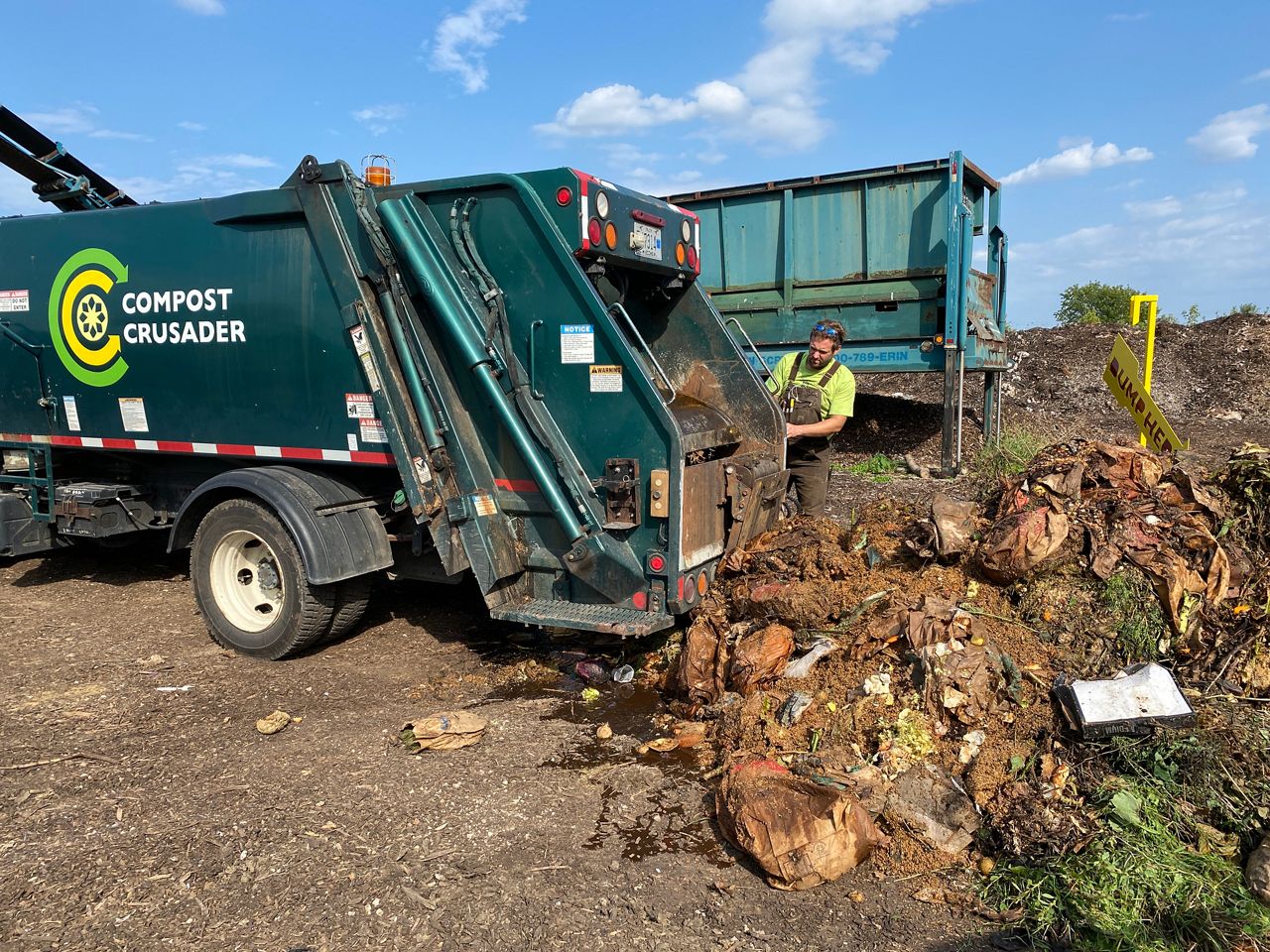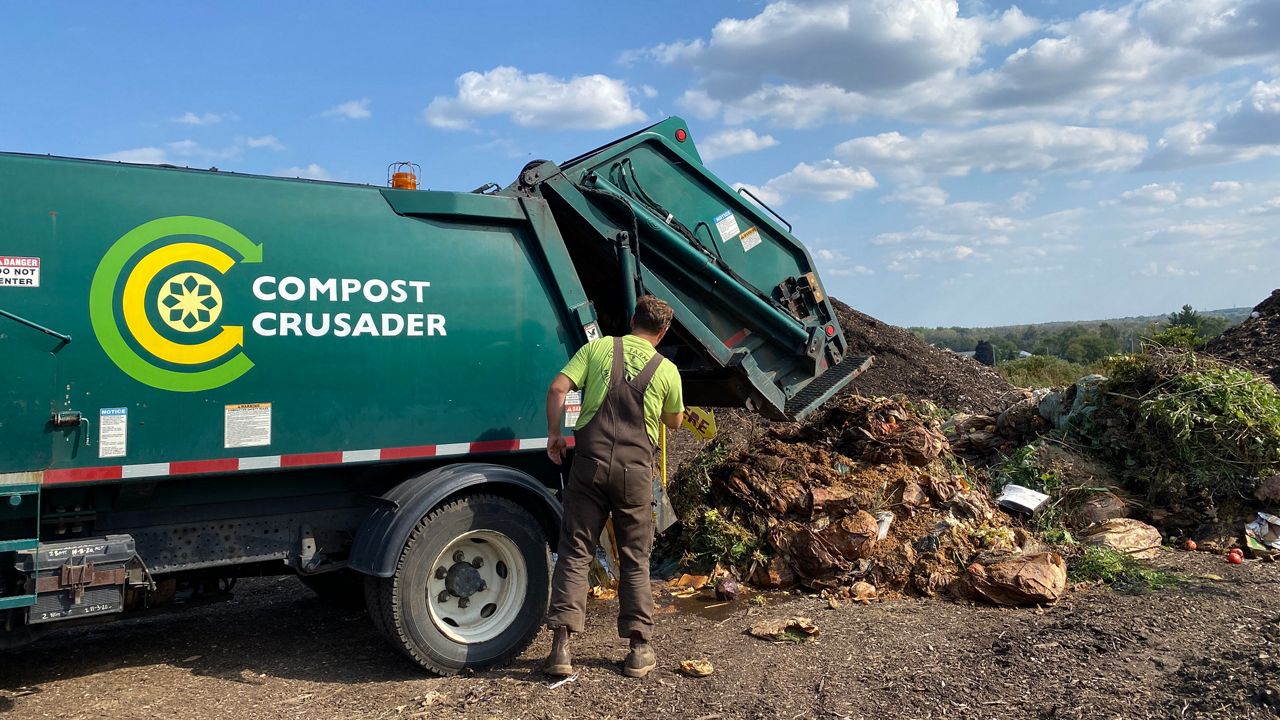FRANKLIN, Wis. — “This is the real business end of things,” said Matt Scannella, pointing to a jumble of discarded items next to a big “Dump Here” arrow.
The pile — and its distinct smell — comes from a collection of organic waste picked up from businesses and homes earlier that day: Discarded branches, coffee grounds, “someone’s corn on the cob that they didn’t want anymore,” Scannella said.
Within a couple of weeks, these materials will break down to look more like dirt than yesterday’s lunch, he said. And in a month or two, the trash will become its own form of treasure: A nutrient-rich soil that can be used for all kinds of projects, including as a powerful fertilizer.
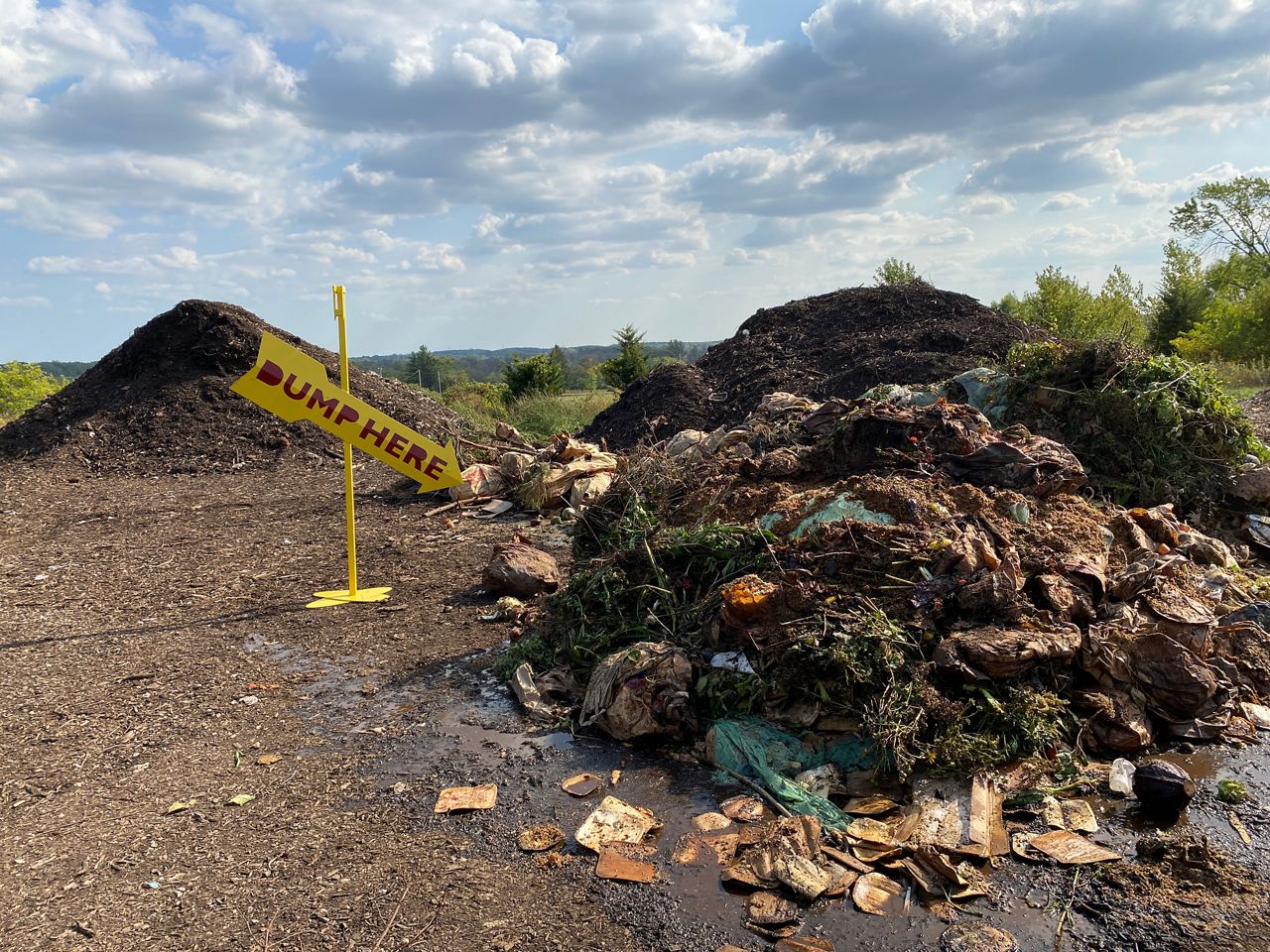
The whole operation is a project of Compost Crusader, a local business that’s looking to build a more sustainable way to deal with food waste.
“A pretty significant volume of what we're landfilling is food that could be composted,” said Melissa Tashjian, the founder and president of Compost Crusader. “And actually recycled into a nutrient soil amendment that can be utilized to heal our Earth.”
The Compost Crusader team picks up food scraps and other organic waste from restaurants, businesses and individual residents across the Milwaukee area, Tashjian explained. Instead of stacking up in landfills, that waste gets hauled into big compost piles, where it breaks down in a way that’s more environmentally friendly.
Tashjian kicked off the business in 2014, and it’s been growing ever since — with the help of Scannella, her boyfriend, who owns his own business called Steel Farmer and helps operate the machinery for the compost process. Now, the team is looking to move to a bigger site, where they’ll be able to tackle an even bigger share of Wisconsinites’ waste.
“I had no idea how much stuff I was throwing away before I met her. Now, it's hard for me to watch people throw food in the garbage,” Scannella said. “Because I know what the potential of it is now. And once you see that, it's just kind of like, are we really going to do this as a society?”
* * *
Tashjian isn’t new to the compost scene. Back in 2009, she helped form a nonprofit called Kompost Kids, the first group of its kind to set up community composting in Milwaukee, she said.
Through her work with Kompost Kids, which mainly dealt with restaurants, Tashjian said she was seeing firsthand how much food waste could be diverted from the landfills — just as the compost industry was seeing a boom across the country.
“Foodies and environmentalists that are in tune with this type of stuff really wanted to know why we couldn’t do that here,” Tashjian said. “Why can California do it, Minnesota do it, but we can’t do it in Wisconsin?”
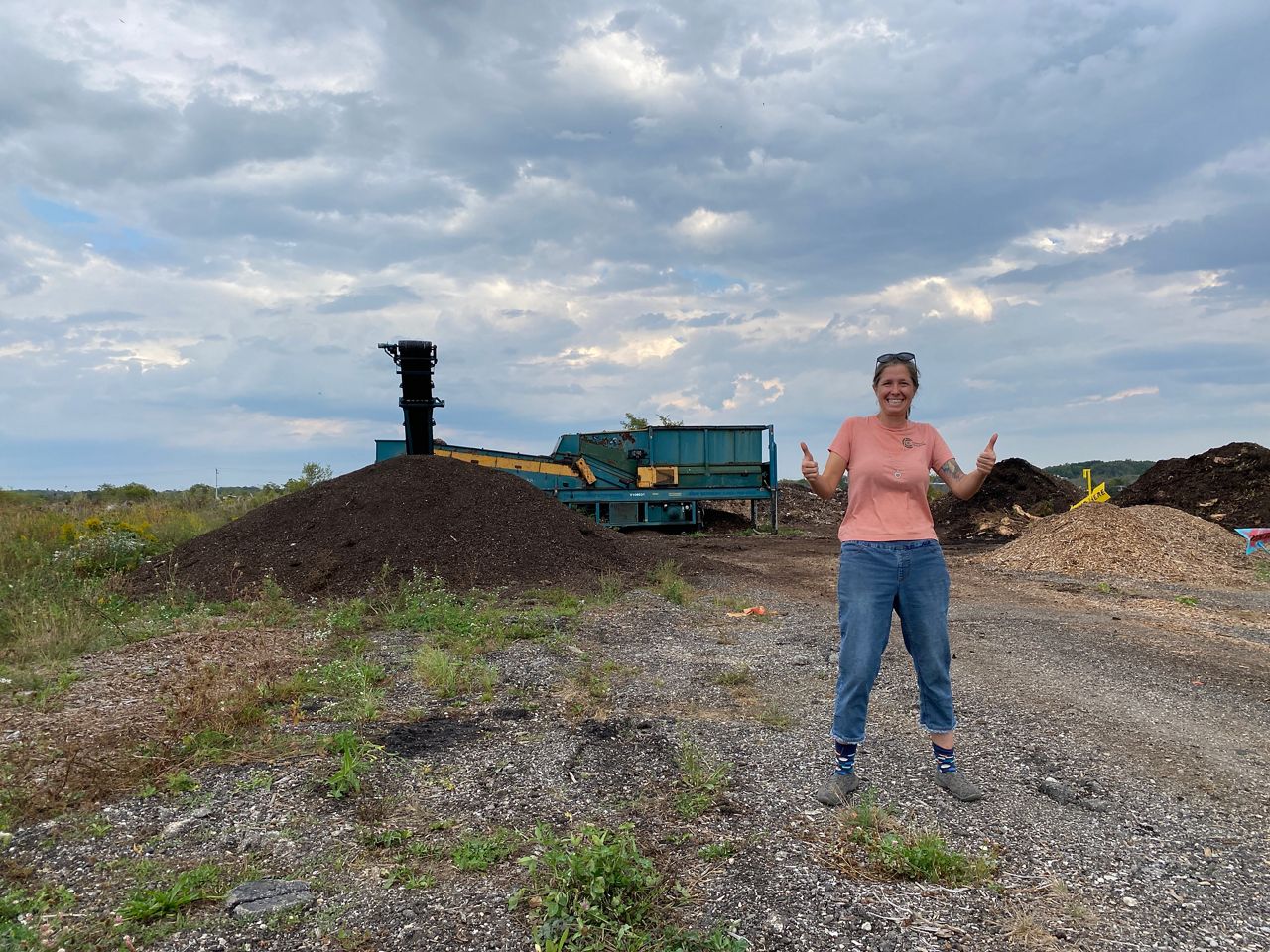
Tashjian decided she would be the one to give it a shot. In 2014, she founded Compost Crusader as a for-profit business: People would pay a regular fee for her team to cart away their organic scraps and take care of the compost process.
The business started with around 14 restaurants, Tashjian said. These days, that number has ballooned to around 130 restaurants, as well as other businesses and institutions.
In the past year, they’ve also put a lot of focus on signing up individual households, especially as COVID-19 has made it a tough time for restaurants, Tashjian said. Since last spring, they’ve doubled their resident participation to 2,000 people across Milwaukee, Ozaukee and Waukesha Counties, she said.
“We’ve just been able to continue to grow,” Tashjian said. “All through grassroots efforts — word of mouth, people see our bins, they see our trucks. It’s ‘Smallwaukee,’ you know?”
At their site in Franklin, the Compost Crusader crew uses what’s known as an aerated static pile for their compost, Scannella explained.
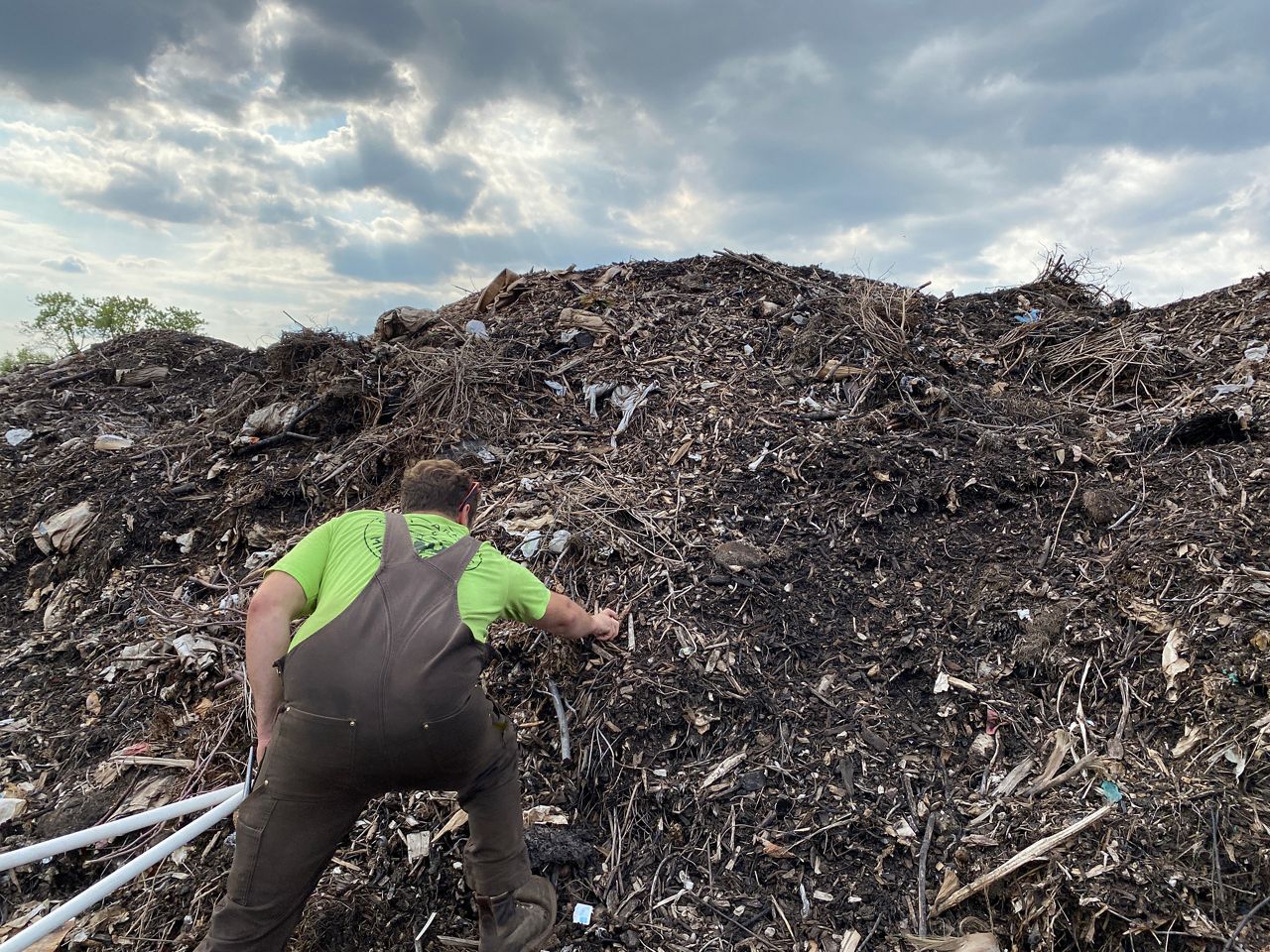
Raw feedstock — the scraps they pick up around the area — gets mixed with wood chips and placed on top of a system of tubes, which pumps air throughout the pile. Within a couple of months, the waste gets broken down by the tiny microorganisms that thrive in the pile.
The team is now eyeing a much bigger home for their composting work: They’re looking to buy six acres of land out in Washington County, Tashjian said.
The final steps are still in the works, but she’s hoping to get things up and running next spring, expanding their capacity and building out concrete pens to “withstand all of Wisconsin’s seasons.”
“We're ready for this next chapter. I know we are. It's gonna be tight in the beginning — we’ll be super broke — but it needs to happen,” Tashjian said. “I'm sick of waiting for someone else to step up and do it. So it's our turn.”
* * *
For Scannella, this work is “a labor of love.” And with more attention focused on the changing climate, he believes the compost movement is going to really take off.
“I think more and more people are legitimately concerned about the environment, and what's happening to our world,” Scannella said.
Food is an important piece of the climate puzzle. According to a recent Department of Natural Resources report, food waste now makes up an almost twice-as-big share of material in Wisconsin’s landfills compared to a decade ago.
Organic waste in general, including food and yard scraps, weighs in at 30% of landfill material — the biggest chunk out of any category, the study found.
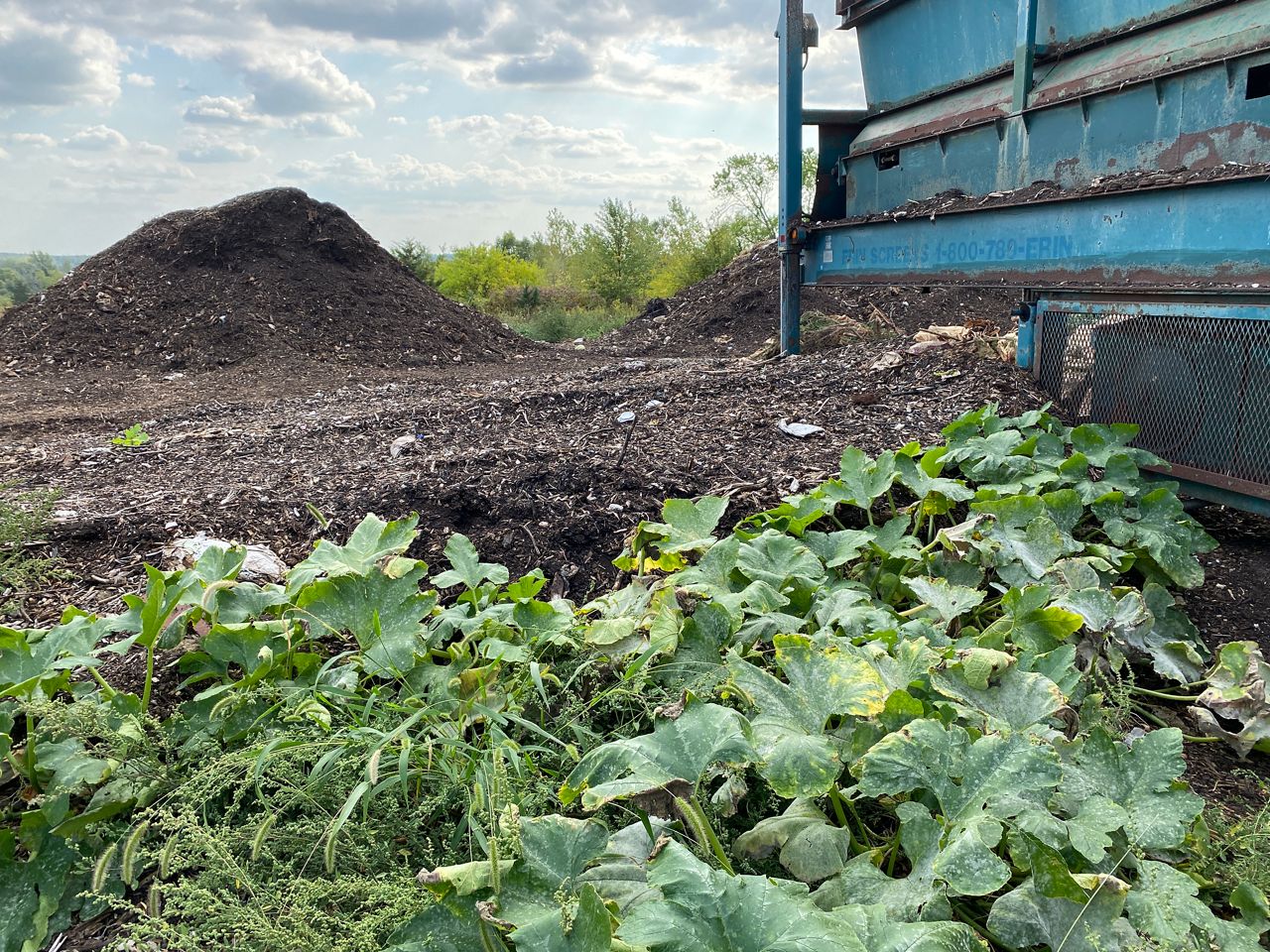
When this type of waste breaks down in landfills — where there’s not a lot of oxygen for tiny microorganisms to work with — it emits large amounts of methane, DNR solid waste coordinator Casey Lamensky explained to Spectrum News 1. The methane, in turn, acts as a powerful greenhouse gas that can trap heat in the atmosphere and speed up climate change.
Composting, on the other hand, essentially speeds up the natural process of decay, cutting down on emissions and keeping food scraps out of the landfill.
And the finished product can give back to the earth, too. Tashjian’s business now sells the finished compost as fertilizer, and she hopes that in the future, they can use it for other projects like green infrastructure and erosion control.
The compost site is living proof of that fertilizing power: Scannella points out a handful of pumpkin plants sprouting up near the pile. “Isn’t that neat?” he said.
While it can be a challenge to build a new habit, Tashjian emphasized that composting can be an easy way to make a difference. She hopes that more individuals will make composting a part of their routine — and that more local governments will start investing in these efforts.
“We're hoping that we can show them that, you know, we're not necessarily the sharpest knives in the drawers, and we can figure it out,” Tashjian said. “We don’t have a million dollar budget to work with, and we're able to make it work.”
Since Compost Crusader got its start, Tashjian estimates the business has diverted well over 8 million pounds of material from the landfill. And she’s determined to keep that number ticking up — for the sake of the planet.
“We need to start preparing ourselves, and start building up the ground underneath us … as the climate continually changes on us,” Tashjian said. “There is not going to be a choice at some point when our landfills are full.”
